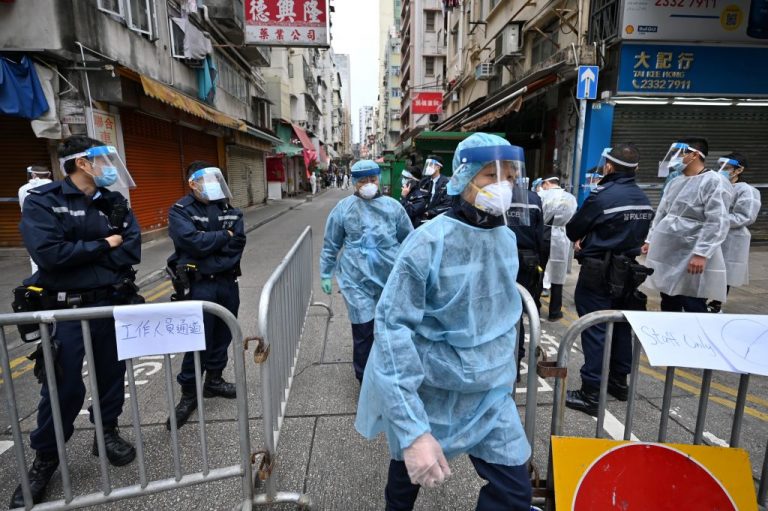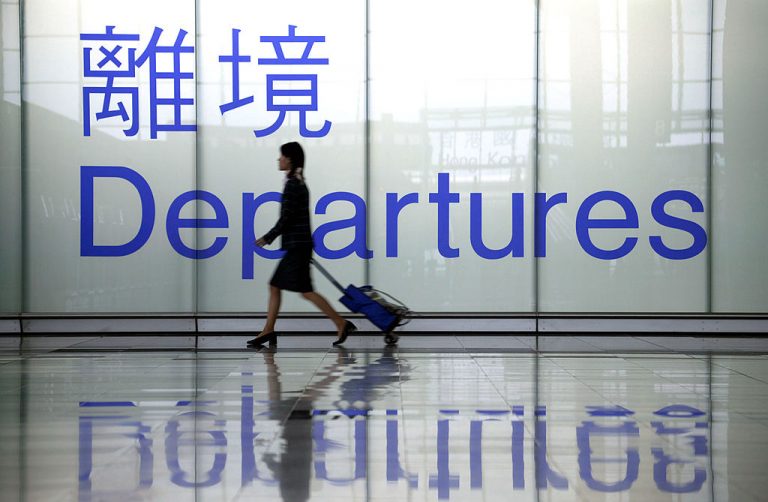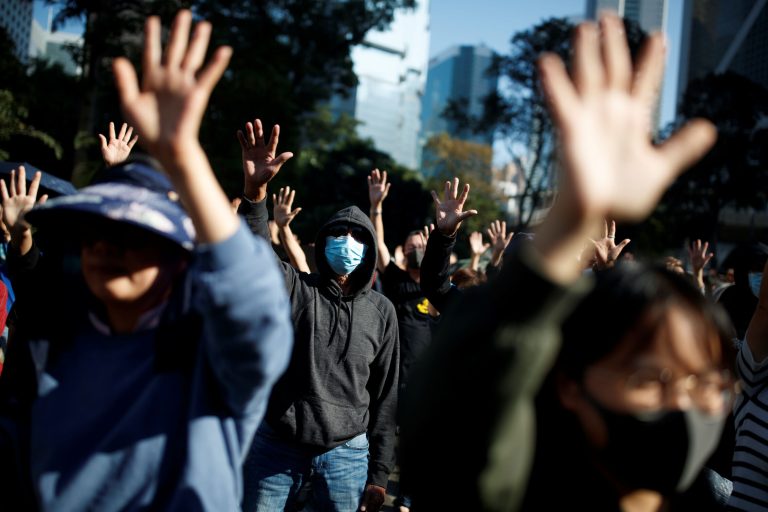After a surge in untraceable COVID-19 cases in Hong Kong, authorities have vowed to secure vast numbers of rapid testing kits in order to “carry out voluntary universal screening and introduce home quarantine for close contacts of patients’ families.”
The city’s Beijing-picked chief executive, Carrie Lam Cheng Yuet-ngor, said authorities would boost the city’s daily coronavirus screening capacity from 100,000 tests to 300,000 and would re-establish a testing site and lab at the Ma On Shan sports center.
Lam said the move was needed in order to ease the strain on the city’s medical facilities and warned that the worst wave of infections since the start of the pandemic is now underway.
“We are procuring RAT [rapid antigen tests] in the tens of millions. We think they will arrive next week. Each member of the Hong Kong public will obtain one kit to do a test,” Lam said during a press briefing, adding it would be “100 percent voluntary” and could not replace lab tests for those subject to mandatory screening.
Health officials in Hong Kong confirmed 130 new local cases on Feb. 4, with untraceable infections accounting for almost half. Lam added that at least HK$20 billion would be injected into the government’s anti-epidemic fund starting this month.
New cases: 45 percent are untraceable
Success
You are now signed up for our newsletter
Success
Check your email to complete sign up
According to statistics released by Hong Kong’s CDC, out of the latest round of confirmed cases, 59 (or 45 percent) did not have a known transmission chain and one was attributed to a patient with a confirmed travel history. In addition, a number of untraceable cases were identified in Sham Shui Po, a crowded residential area in the city’s Kowloon district.
Hong Kong’s COVID tally now stands at 14,715 infections, with 213 related deaths. A total of 195 preliminary-positive cases were also reported today. Since the start of the fifth wave in late December, around 250 cases stem from unknown sources.
In response to the rapid uptick in positive cases, Lam said she reached out to the governments of Beijing and Guangdong for help, especially on boosting the city’s testing capacity. Medical professionals from mainland China have begun arriving in Hong Kong in the past two weeks to assist with testing in existing laboratories, with more staff scheduled to arrive and help in the new Ma On Shan lab, she added.
When asked whether Hong Kong would find a way to co-exist with the virus without shutting down entirely, Lam said she would consider it only when the “vaccination rate was higher” and urged elderly residents and those who are immunocompromised to get inoculated as soon as possible.
University of Hong Kong epidemiologist Professor Benjamin Cowling said the additional measures should “slow down transmission of the virus” but added that he did not think they would be enough to bring the fifth wave under control.
While Lam said the main goal for the city was still containment, Cowling pointed out that she had introduced a number of changes more consistent with a transition towards mitigation rather than preventive measures.
Last month, Hong Kong authorities announced that about 2,000 hamsters and other animals would be killed after some of the rodents tested positive for COVID-19 at a local pet store and potentially infected a worker there.
In addition, Hong Kong police arrested two former Cathay airlines flight attendants on grounds of “breaching COVID-19 rules.” The former employees were reportedly linked to a local outbreak of the Omicron variant and face a fine and up to six months of jail time if convicted.
Lam said although the new Omicron variant had brought about the worst wave of COVID infections in the past two years, she noted the city had carried out a mass testing programme since September 2020 and had tested over 1.5 million residents since then.
“The [current outbreak] has not gone out of control, but it’s very serious and critical, and we still haven’t seen the peak of this wave,” she warned.
“The city’s government will not give up, we will do our utmost to achieve zero infections, to contain the coronavirus, and I hope residents will not give up either. We will not surrender.”







